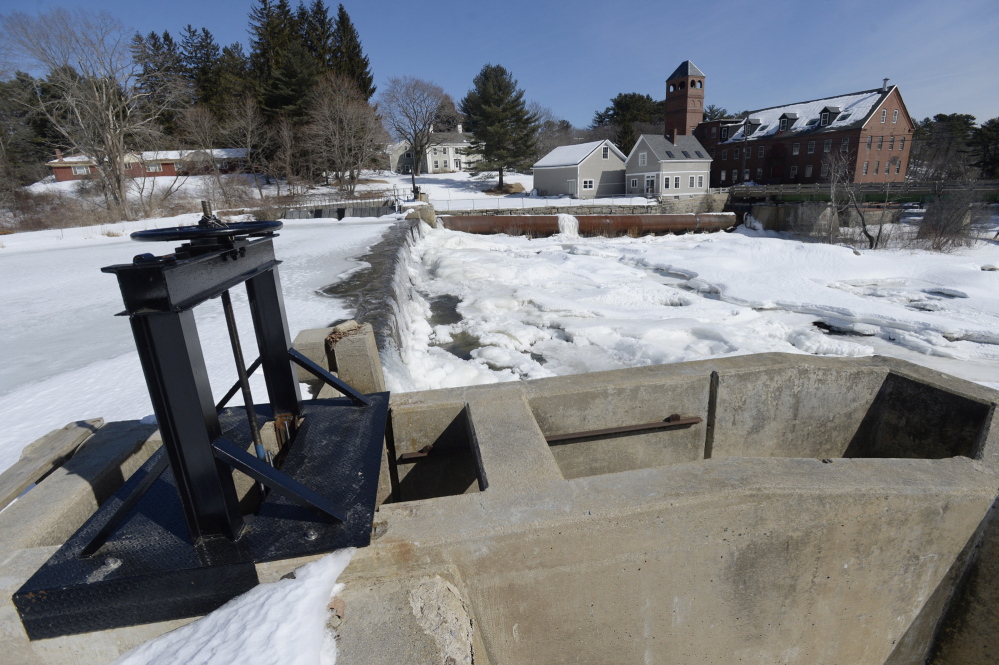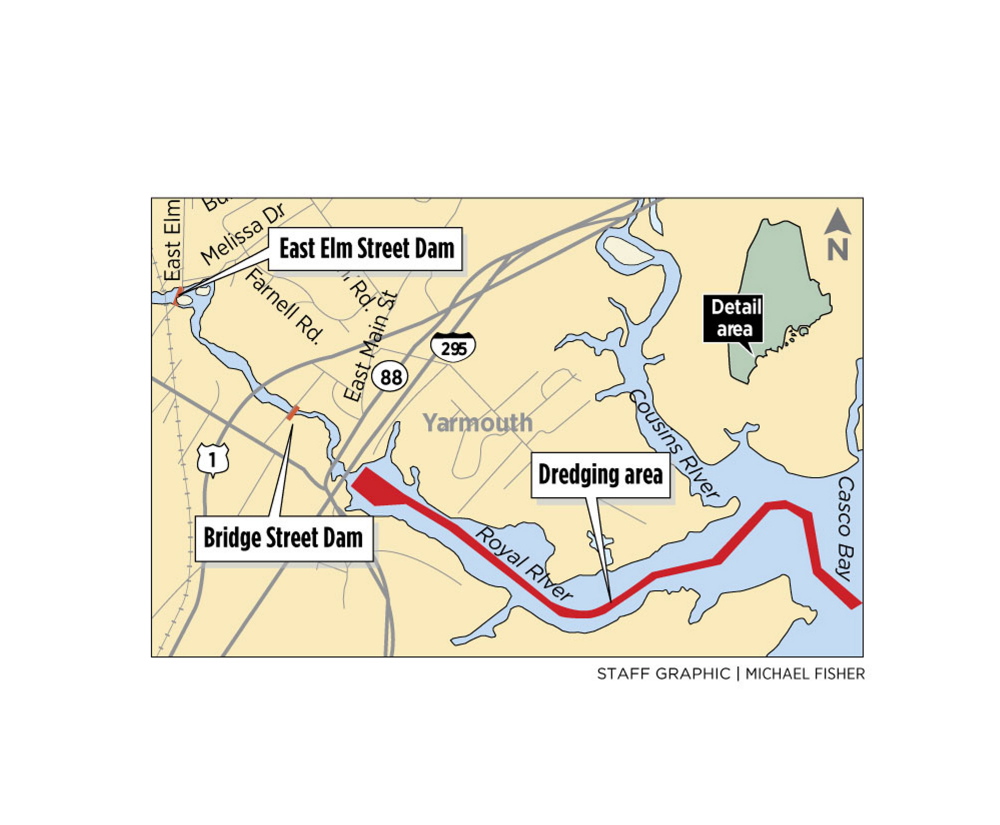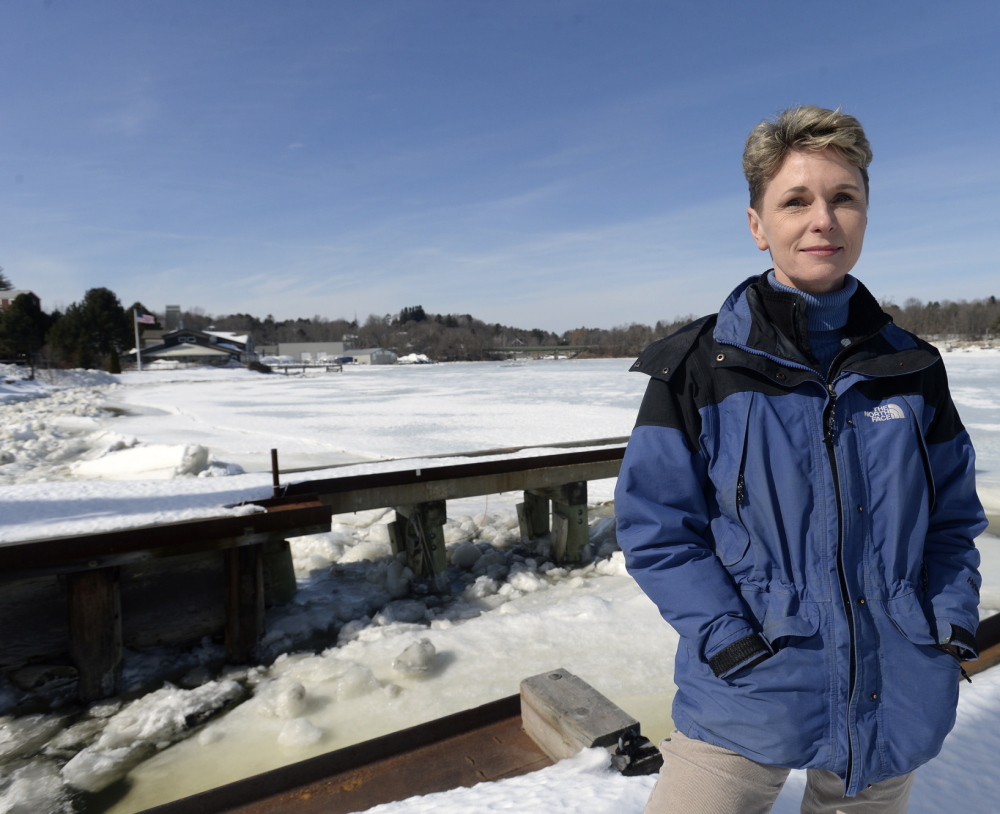YARMOUTH — Town officials in Yarmouth say a desperately needed federal project to dredge Yarmouth Harbor may finally move forward and remove sediment that is restricting boat traffic in and out of Casco Bay.
Later this week, the U.S. Army Corps of Engineers, which is responsible for maintaining water depths in the access channel that leads to three private marinas and a public boat launch in the harbor, is expected to announce whether the project will be included in its work plan. Officials in the Office of Budget and Management, which develops and approves budgets across the federal government, must sign off on the list of projects.
If approved, the $2.5 million project could begin as soon as October. A private contractor would be hired to begin digging up and removing 60,000 cubic yards of sand and silt that have settled on the floor of the Royal River between the public launch ramp and Casco Bay.
“I’m more hopeful than I’ve been in the last 20 years,” said Ed O’Donnell, chief of the navigation section for the Army Corps’ Greater Boston division in Concord, Mass. “This is the closest the town has gotten to a federally funded dredge.”
Without dredging, the three private marinas, which together contribute more than $25 million annually to the local economy, would continue to see business whittled away as boat owners choose ports of call with deeper harbors and more consistent access, said Deborah Delp, who owns Yankee Marina. Her boatyard has served pleasure cruisers and commercial fishermen for 50 years. But, Delp said, if left unchecked, the harbor’s worsening condition could put her out of business within 10 years.
O’Donnell and the Army Corps’ project manager for the Yarmouth dredge, Michael Walsh, said it’s still uncertain whether the project will be included in the work plan, but signs have been positive. The Army Corps took the step to begin its equivalent of a permit process, and is expected to begin publishing public notices that it is actively pursuing the project.
At low tide, silt and mud block commercial fishing vessels and other large boats from reaching the three marinas, which depend on consistent access to attract customers who rent moorings or have maintenance work performed at the yards. Each year since 1997, when the last federal dredge was completed, material flowing down the Royal River and carried into the river by tidal forces has built up in what should be an 8-foot-deep navigation channel.
The Army Corps is supposed to dredge every 10 years, but because of the economic downturn and reduced federal budgets, the Yarmouth project has been pushed aside in favor of more pressing projects at more strategically important ports, officials said.
Delp said that in recent years, boats at low tide have languished on their sides in mud, stranded by the rising silt banks. Commercial fishermen, whose vessels require deeper water, cannot leave the harbor at low tide.
“I’m going to work as hard as I can to make (the dredge) happen, because they need it,” said Walsh.
The marinas often perform smaller dredging operations to clear material from areas that are not maintained by federal authorities, said Curt Mildrum, general manager at Yankee Marina. Those semiregular dredging projects remove only about 2,000 cubic yards at a time, and do not address the needs of the channel that leads to Casco Bay, Mildrum said.
“When word kind of gets out that it’s harder and harder to get up the Royal River, less and less people want to come up here for work and service,” he said.
Steve Woods, chairman of the Yarmouth Town Council, said he and other town officials have been working with Maine’s congressional delegation to push for the funding, although the Army Corps ranks Yarmouth’s project a lower priority than other sites around the country.
“Yarmouth is a smaller dredge (and) just wasn’t as high as a priority,” Woods said. “With the help of our congressional delegation, the Army Corps has suggested there may be relief coming.”
If the project goes forward, a contractor would scoop the material from an 8-foot-wide channel, scooping down 8 feet into the mud to create a channel navigable even during low tide. The work would take roughly six months and would likely be completed during the fall and winter months. The material would be dumped within a predesignated dumping area several miles off shore.
The hoped-for good news from the Army Corps may influence a discussion Thursday by the Town Council, which is preparing to review a nonbinding resolution to study and pursue removal of the Bridge Street Dam upriver from the harbor. Dam removal has been the subject of years of study and discussion in Yarmouth, and has worried marina owners, who fear that releasing the Royal River’s impoundment above a second dam, the East Elm Street Dam, could unleash more silt into the already clogged harbor.
After two rounds of dam removal studies by the town, Delp, the marina owner, said she and the proprietors of the two other boatyards have spent $12,000 to commission their own engineering evaluation. The engineers are expected to make a presentation Thursday at the Town Council workshop, which is slated for 7 p.m. in the American Legion Cabin.
However, Woods said any resolution endorsing dam removal would likely be predicated on the completion of the dredging project.
Matt Byrne can be contacted at 791-6303, or at:
Twitter: MattByrnePPH
Send questions/comments to the editors.






Success. Please wait for the page to reload. If the page does not reload within 5 seconds, please refresh the page.
Enter your email and password to access comments.
Hi, to comment on stories you must . This profile is in addition to your subscription and website login.
Already have a commenting profile? .
Invalid username/password.
Please check your email to confirm and complete your registration.
Only subscribers are eligible to post comments. Please subscribe or login first for digital access. Here’s why.
Use the form below to reset your password. When you've submitted your account email, we will send an email with a reset code.